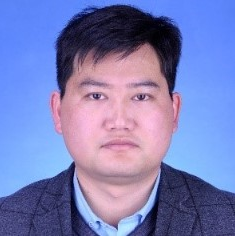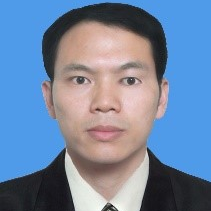Advances in Sewage Sludge Treatment and Recycling Applications
A special issue of Sustainability (ISSN 2071-1050). This special issue belongs to the section "Resources and Sustainable Utilization".
Deadline for manuscript submissions: closed (15 December 2023) | Viewed by 3341
Special Issue Editors
Interests: resource utilization of solid waste
Interests: nutrient recovery by anaerobic digestion technology
Interests: experimental; molecular dynamic; machine learning studies on the thermochemical valorization of biomass to produce bio-oil; biochar; value-added products
Special Issues, Collections and Topics in MDPI journals
Interests: treatment and resource utilization of polluted solid waste; migration and transformation of pollutants; soil remediation; non-point-source pollution
Special Issues, Collections and Topics in MDPI journals
Special Issue Information
Dear Colleagues,
Sewage sludge, the main byproduct of sewage/wastewater treatment, is produced in large quantities. Generally, sludge treatment and disposal can account for half of the operating cost of sewage treatment plants. Therefore, the economical and efficient treatment of sludge can promote the healthy development of the sewage treatment industry.
It is worth noting that sludge is different from general organic solid waste. It is an extremely complex mixture. The water content of sludge is particularly high, and the water content of activated sludge is even as higher, at 97–98%. Additionally, the sludge contains not only non-toxic organic carbon compounds but also some toxic organic pollutants, such as polycyclic aromatic hydrocarbons, polychlorinated biphenyls, and dioxins. Furthermore, in addition to the common silicate, aluminate, and calcium magnesium compounds, the inorganic components in sludge also contain heavy metal pollutants. The sludge also contains microbial pollution sources and nitrogen and phosphorus nutrients. The complexity of sludge components determines the difficulty of treatment and the high requirements of the treatment and disposal processes.
The research and development of sustainable sludge treatment and disposal methods have always been key research topics worldwide. It is generally believed that the ideal sludge treatment or disposal technology should meet three requirements: acceptable cost, recycling of available components, and effective control of polluting components.
This Special Issue of Sustainability aims to report the latest developments in the treatment and disposal of sewage sludge, such as dewatering, anaerobic digestion, compost, hydrolysis, pyrolysis, liquefaction, gasification, incineration, etc. Therefore, we invite authors to contribute research articles, reviews, communications, and concept papers that will show the recent advances in this field.
Prof. Dr. Huajun Huang
Prof. Dr. Jie Ye
Prof. Dr. Lijian Leng
Prof. Dr. Zhihua Xiao
Guest Editors
Manuscript Submission Information
Manuscripts should be submitted online at www.mdpi.com by registering and logging in to this website. Once you are registered, click here to go to the submission form. Manuscripts can be submitted until the deadline. All submissions that pass pre-check are peer-reviewed. Accepted papers will be published continuously in the journal (as soon as accepted) and will be listed together on the special issue website. Research articles, review articles as well as short communications are invited. For planned papers, a title and short abstract (about 100 words) can be sent to the Editorial Office for announcement on this website.
Submitted manuscripts should not have been published previously, nor be under consideration for publication elsewhere (except conference proceedings papers). All manuscripts are thoroughly refereed through a single-blind peer-review process. A guide for authors and other relevant information for submission of manuscripts is available on the Instructions for Authors page. Sustainability is an international peer-reviewed open access semimonthly journal published by MDPI.
Please visit the Instructions for Authors page before submitting a manuscript. The Article Processing Charge (APC) for publication in this open access journal is 2400 CHF (Swiss Francs). Submitted papers should be well formatted and use good English. Authors may use MDPI's English editing service prior to publication or during author revisions.
Keywords
- sewage sludge
- dewatering
- anaerobic digestion
- compost
- hydrolysis
- pyrolysis
- liquefaction
- gasification
- incineration








